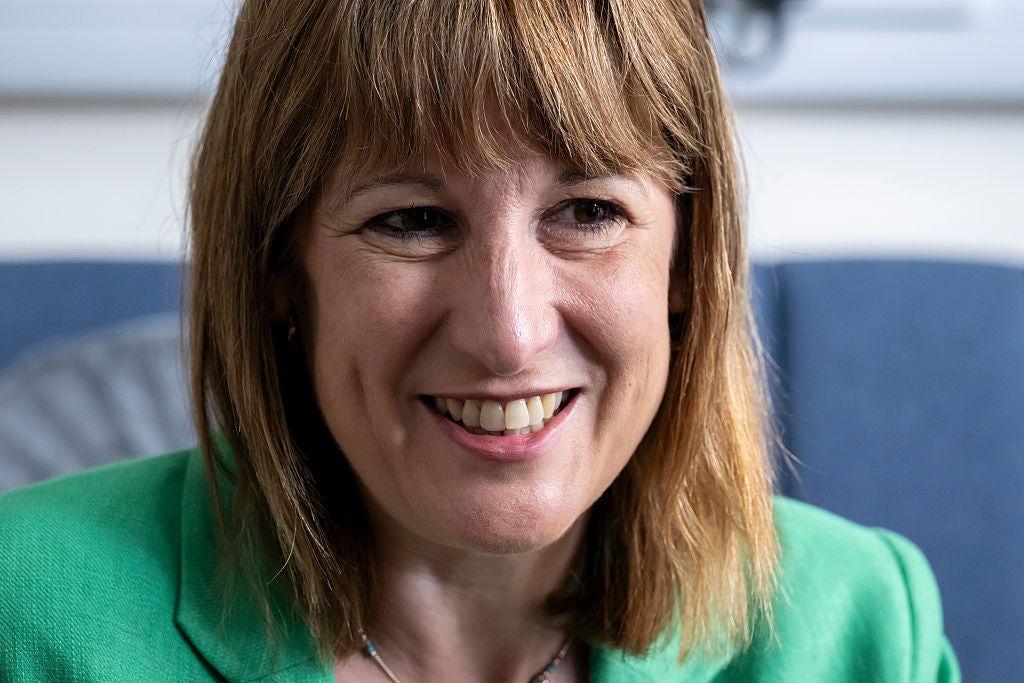Savers with cash in low-interest bank accounts will be contacted and encouraged to consider more lucrative investments, under Rachel Reeves’ plans to boost the economy and raise wealth.
One example offered by the Treasury on how people can benefit showed that a saver investing £2,000, such as in a stocks and shares ISA or general investing account, rather than letting it sit in a low-interest account, could expect that to grow to £12,000 after 20 years.
That was compared to £2,700 if left in a savings account - a difference of more than £9,000 for families or individuals, or around 4.5 times more.
As part of a wider financial overhaul set to be unveiled in the chancellor’s Mansion House speech on Tuesday night, banks will send customers details of potential investments to consider, while the City, the London Stock Exchange (LSE) and banks will launch a campaign to highlight the benefits of investing.
Speaking in Leeds ahead of her speech, Ms Reeves said: “We need to double down on our global strengths to put the UK ahead in the global race for financial businesses, creating good, skilled jobs in every part of the country and helping savers' money go further.”
The government’s example of a £9,000 return figure from an initial £2,000 investment makes the point that investing offers better returns than saving over long periods, that figure is based on savers having a low interest rate of 1.5 per cent.

While it is true that many people hold too much money in low or no-paying accounts, it is possible to get more than 4.5 per cent currently, though interest rates have been falling and should continue on a downward trajectory this year.
The return on investment in the example cited is based on a 9 per cent compounded monthly return across 20 years to arrive at an end total of £12,018.
Historical rates do suggest a 9 per cent return is feasible, but investing in shares does not grow or compound in a straight line - dividends may be paid quarterly or annually, or not be paid at all, meaning capital growth is required to achieve that year-on-year improvement.
It also assumes the initial £2,000 is never touched or added to in either investing or saving cases.
Ideally, those looking to invest would not withdraw the initial cash, but add to it to supercharge potential returns.
For example, using the same 9 per cent rate as the government but adding an extra £250 every six months would see an end total of £39,300 over 20 years - a significant uplift which highlights the importance of regularity and compounding over time.
Alternatively, for younger people with less money to invest but a far longer time over which to let investments grow, starting with just £500 and adding another £500 every year for 40 years would see them end up with over £163,000 at an 8 per cent annual return, £222,000 with the government’s 9 per cent target and just under £1.6m at an annualised 15 per cent rate of return.
Financial services firm Morningstar recently published a list of the best-performing investment trusts over the past decade, with nine trusts returning above 15 per cent.
But banks getting in touch with customers and the LSE embarking on an advertising campaign will not be all that is required to push private savers towards investing.
ISA reform is still required, and far more education is needed for the general public, said AJ Bell’s CEO, Michael Summersgill, and it must be by encouraging, not directing people what to do with their money.
“Kickstarting an investing revolution could boost household finances and UK capital markets in the process. With at least £100bn sat in Cash ISA accounts held by savers with £20,000 or more in cash but no ISA investments, there is a huge prize at stake if government gets this right,” Mr Summersgill said.
“Crucially, government must recognise that this can’t be achieved by diktat. It may be tempting to try and marshal ISA contributions through rules and regulations – such as mandatory quotas on UK assets or restrictions on cash contributions. But this simply won’t work.
“Government should start from scratch on the best design of the ISA system. Endless tinkering has left consumers facing a myriad of divisive choices, with many simply opting for the easy choice: cash.
“Instead, a simpler system with a single ISA account would allow consumers to glide between saving and investing seamlessly. Removing friction between cash and investment accounts would create a more flexible system, lifting the psychological barrier between saving and the stock market.”







